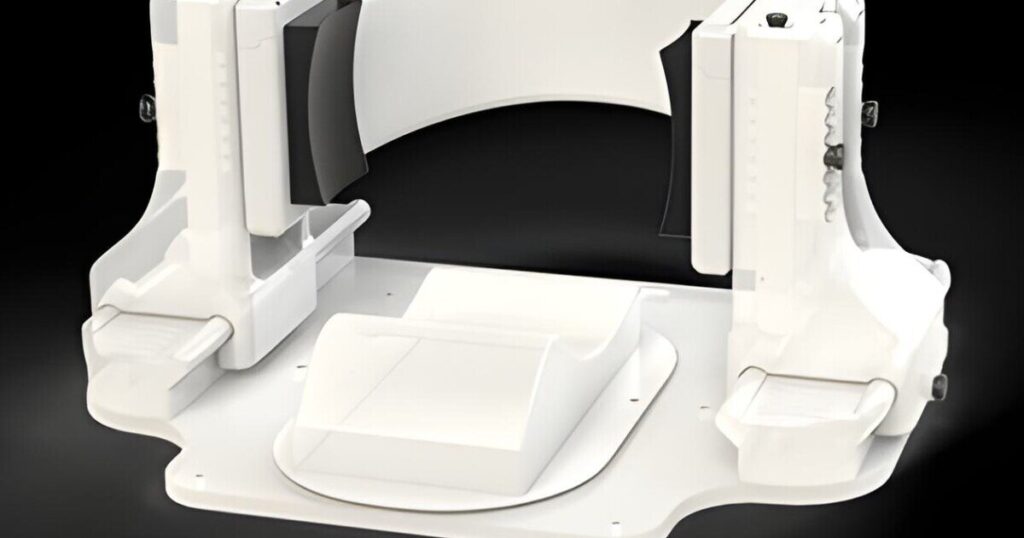Researchers at the University of Utah have achieved a notable milestone with a head-mounted ultrasound device named Diadem, which has shown promising results in alleviating chronic pain and depression. The innovative device recently concluded two human trials, demonstrating significant symptom improvement in just one session.
Diadem, resembling an ornate headphone-like band, operates through neuromodulation, a method that uses focused ultrasound beams to target specific brain areas. This breakthrough enables precise stimulation of the anterior cingulate cortex, a brain region associated with pain perception and emotional processing.
In a chronic pain study, 20 participants received two sessions with Diadem after undergoing functional MRI scans to pinpoint the exact brain regions involved in pain signaling. Remarkably, 60% of participants reported at least a 33% reduction in pain immediately after treatment. In a separate study focusing on depression, 14 clinically depressed patients were treated using the same MRI and Diadem protocol. One week post-treatment, 10 of these patients experienced significant remission after just one session.
“We’ve been blown away by the positive results so far,” said Tom Riis, the study’s lead author and a postdoctoral researcher in the Department of Biomedical Engineering. “After just a single 40-minute stimulation session, patients are showing immediate, clinically substantial improvements in symptoms.”
Riis stressed that although not every participant experienced drastic improvements, the changes for those who did were profound. “For several participants, the transformation was visible—they left the session more at ease, less burdened, and more present,” he added.
Diadem’s success is particularly noteworthy given the challenges typically faced by non-invasive brain stimulation techniques. Unlike methods that require the implantation of electrodes or devices into the brain, such as Elon Musk’s Neuralink, Diadem offers a non-invasive alternative. The device’s ability to counteract the brain’s natural barriers, such as the quarter-inch thick skull, is a key factor in its precision. “Ultrasound-based approaches can reach millimeter-level precision,” Riis explained. “Like focusing light through a magnifying glass, we can concentrate sound waves into a small, intense volume, allowing us to stimulate brain regions with pinpoint accuracy.”
With these promising results, Riis and his team are now preparing for Phase 3 clinical trials. If successful, Diadem could receive Food and Drug Administration (FDA) clearance, bringing this innovative treatment to the public. “The rapid onset and sustained improvement in pain symptoms are intriguing and suggest that non-invasive treatments could benefit many patients resistant to current therapies,” said co-author Professor Jan Kubanek.
The upcoming trials are critical for validating Diadem’s efficacy and ensuring its availability to those in need. “The potential for this technique to change, even save, people’s lives is becoming increasingly clear,” Kubanek emphasized. “We encourage individuals suffering from chronic pain to consider participating in our forthcoming study. Our goal is to make this treatment accessible as quickly as possible.”
The findings from this study have been published in the journal Pain, shedding light on the revolutionary potential of ultrasound-based neuromodulation in treating chronic pain and depression.


